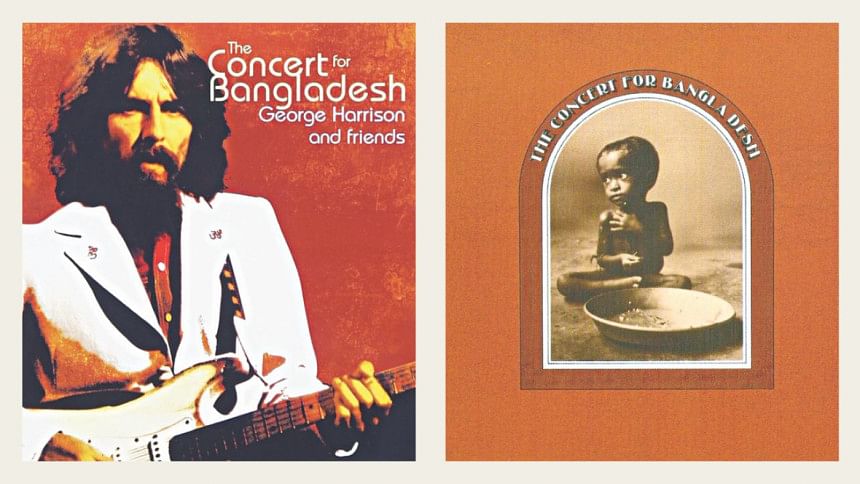The everlasting appeal of the Concert for Bangladesh

A prominent member of the iconic British band Beatles, George Harrison, was one of the main coordinators of the Concert for Bangladesh, held at Madison Square Garden, New York, on 1 August 1971 to raise international awareness and funds for Bangladesh's liberation war. Harrison ended the concert with the song 'Bangladesh, Bangladesh'. The simplicity of the lyrics takes on a new and powerful force. For by then, they are no longer an expression of intent but of an accomplished mission — help has been given, people have been reached, an effort has been made and results will be felt.
With such names as Eric Clapton, Ringo Starr, Billy Preston, Leon Russell, and finally, Bob Dylan, involved, the concert would have been an enormous success no matter how it was planned or run. But part of the record's beauty is that Harrison staged a concert worthy of his purpose in every respect.
Till this date, the idea of a renowned Beatles' member, a rock-guru such as Harrison singing for Bangladesh's liberty along with other musical maestros leaves goosebumps in our skin. It continues to move us, make us want to trace back our roots through the lenses of 71, to start a revolution of humanity and chant along like a hymn the divine name of our beloved nation.
Taslima Tariq, 19, an avid fan of The Beatles and a student in the Global studies and governance department at Independent University of Bangladesh, says, "It makes me fill up with zeal when I think about Harrison coming forward to help us during the war, makes me put a lot of things into perspective. Harrison being such a famous and charismatic musician — to be moved by something happening so many miles away." Indeed the art and music of that time screamed out the religion of love and humanity. Hrithik Kabir, 21, a student of literature in Dhaka University, also speaks along that same line.
"It was the time! The concert of Bangladesh was the cherry on top of the exuberantly liberating and revolutionary decade the sixties and the early seventies was. It inspires me greatly."
As a musician and a fellow lover of rock music, Ashraf, 17, says "Music is magic, music works when words and actions fail, Harrison, Ringo, Clapton, Dylan, Ravi Shankar – they are miniature gods who created time bending music. Music which moved people and open up their eyes about what was happening around the world besides the comfort of their houses, it made them wake up. I would like to wake people up with the music I make someday as well."
The Shankar-Harrison duo awed many, the east meets west and the exotic tales relating to the fusion of rock and classical intrigued the music enthusiasts of that time and even now. As Sharmeen Islam, 24, student of business at North South University puts it —
"The intermingling of the magnificent guitar shredding of the rock gurus and Shankar's iconic classical melodies is what stimulates me about the concert, goes to show how appreciation of different cultures is so important and prove to be so valuable."
Keeping this on one hand, Maruf Ahmed an tenth grader clad in his black T-shirt with the lyrics on "Bangladesh" written on it tells us, "They did it for my motherland, my country, my pride and that is what makes me surge up with emotions and respect for the ones who stood up against the tyranny of 71 in their own ways."
Be it the transcending rhythm or the hymn — like chant, the concoction of west and east, the legacy of Harrison with his scraggly beard and piercing eyes, the magic of Dylan, Clapton, Ringo or Shankar, or our passionate love for our nation — this concert remains an iconic moment and still inspires the youth of Bangladesh as if it happened yesterday.
Photo: Collected

 For all latest news, follow The Daily Star's Google News channel.
For all latest news, follow The Daily Star's Google News channel. 



Comments